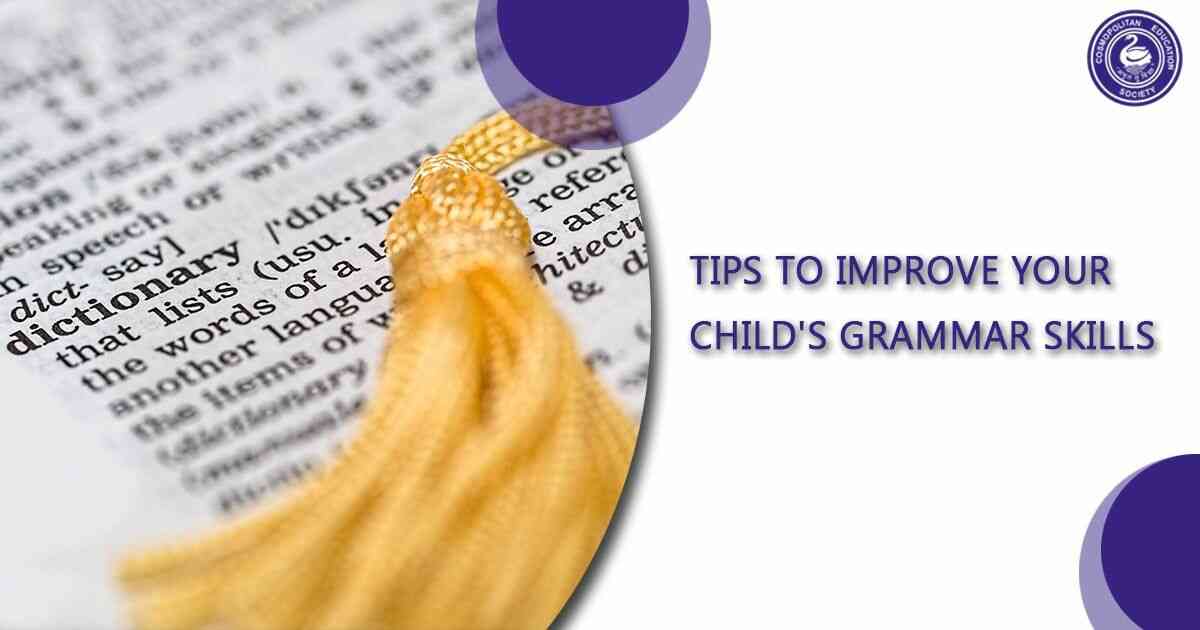Tips To Improve Your Child’s Grammar Skills

Grammar can be a dirty word for some people as it consists of boring books, presentation and exercise to learn it
Grammar can be a dirty word for some people as it consists of boring books, presentation and exercise to learn it. But it is more than that where you can have various ways to learn and improve in grammar.
Why grammar is important?
IF someone has to write well that person has to know the correct grammar. It can be considered as an essential backbone of any language. It’s the most important sentence and text-level facet of the writing processes and without its knowledge, it can cause confusion to both the writer and the reader.
Talking about India, kids start learning about how to use grammar in English at least in English medium schools and of other languages in later standards of their learning. Some schools even opt to teach grammar for other languages at the same time when they start learning English grammar. Which includes how to frame sentences using right punctuations and grammar elements like tense, word order and word classes like nouns, pronouns, verbs, adjectives, and adverbs. By doing this kid would know that their content is meant to be read by people and they should understand it and it will only be easy if grammar is correct.
Using correct grammar for writing and spoken communication is important so the message can be understood clearly. This makes process of communication easy. Incorrect grammar can create confusion as the message can become meaningless, unclear and liable for misinterpretation.
How to know if anybody has problems in English Grammar
If the kid struggles or is not able to get words in English or any other language, here things might get tricky. Children grow and learn to understand and speak a particular language. Some learn to communicate fast while others might take time. So, in that situation the person teaching should be careful about how to react in this kind of situation. As children miss a grammar or punctuation here or there while writing sentences, their writing comes across as one single statement void of any meaning. Some children may confuse tenses— for example, they may use past tense for present or present tense for the future tense or vice versa. There are also other problems like understanding or expressing in English, reading or spelling, writing, or even sequencing.
How to Develop and Improve Grammar?
Kids learn grammar on daily basis both at home (their native language) and scholl where they learn English as well as native language and at times it can be very staggering for them and might not know where they are going wrong. Following are two ways to correct their grammar.
Correct Them When They Speak Wrong
Kids might get their grammar wrong sometimes. Say for example they might say “The phone felled from my hand.” In such situation they should be corrected and thought to say “The phone fell from my hand.”
As English might not be a native language for most of the kids they would use most of the wrong words in the beginning but when corrected these mistakes can be improved.
Help Them With Sentence Structure
Structures of sentences always differ and it might get difficult to explain it to them about different variations at their age.
For example, you can do something like fill in the blank game at home.
- Pooja ________ apples. (drinks, likes, walks, takes)
- Bird _________ on trees. (lives, run, sleep, play)
Tell Them The Right Tenses
Tenses are one thing where most children can falter. It’s easy for them to get the tenses right in their native language but it can get difficult in English. Children can practice by writing one sentence using all types of tenses.
- We are in the park right now (Present)
- We went to the park this morning (Past) We enjoyed at the park last evening (Past)
- We will go to the park (Future)
- We are on our way to the cinema (Present)
- We saw a movie last week ( Past)
- We are going to a movie this Sunday (Future)
It’s also good if you teach them the difference between ‘ing’ and ‘ed.’
Give them these below examples:
- Walk-walking-walked
- Watch-watching-watched
- Close-closing-closed
- Tie-tying-tied
Get Their Punctuations Right
IT is important to teach kids punctuations and its uses. They can be given some child friendly use case definitions.
- Full Stop/Period– Must be always used at the end of a sentence.
- Commas– Must be used to separate a list or clauses.
- Exclamation– Must be used to emphasize a point.
At the end they should be encouraged to read newspapers, storybooks, comics to learn and understand how sentences are to be framed using grammar. It’s always better to expose the child to language as it will not only help them learn the grammar but also to the rules and exceptions. Knowing grammar can make the understanding language much better and also fun.

